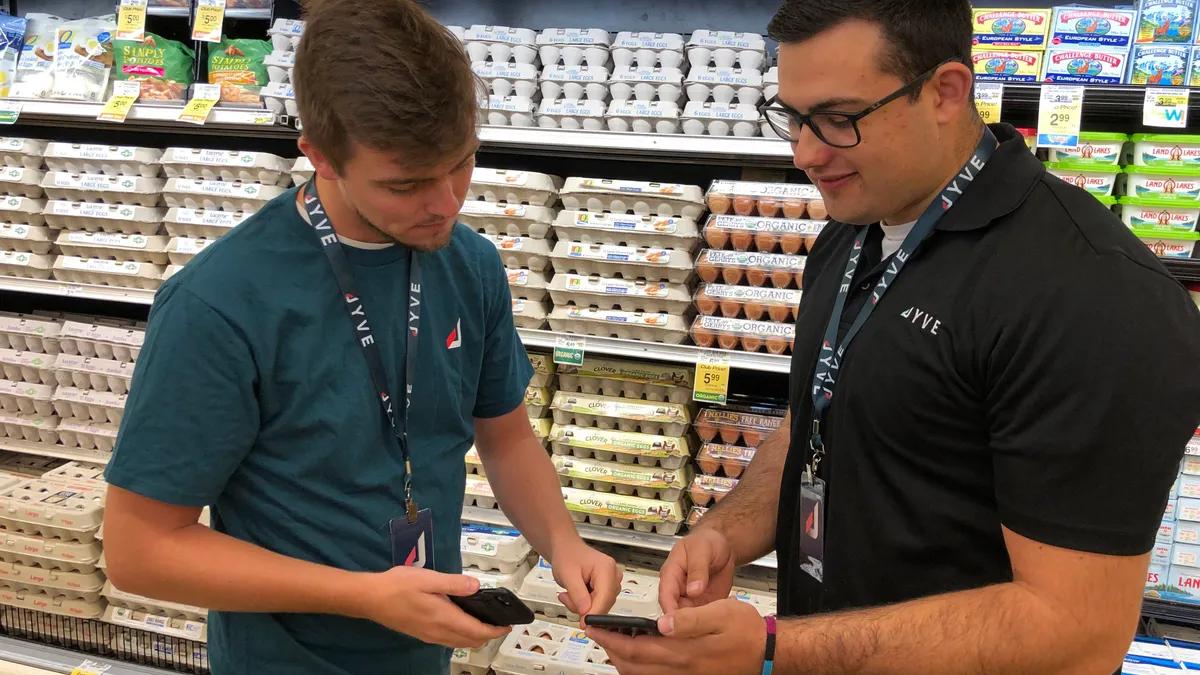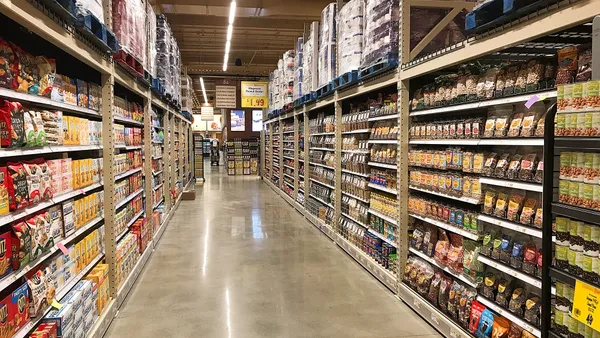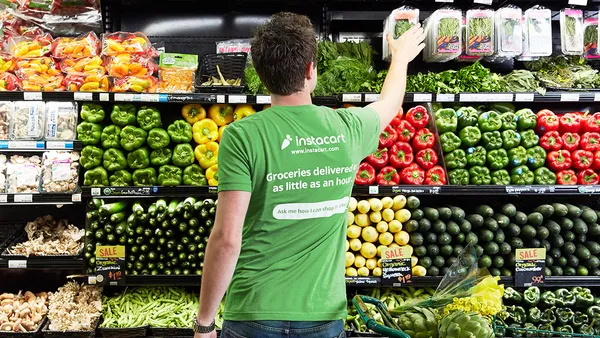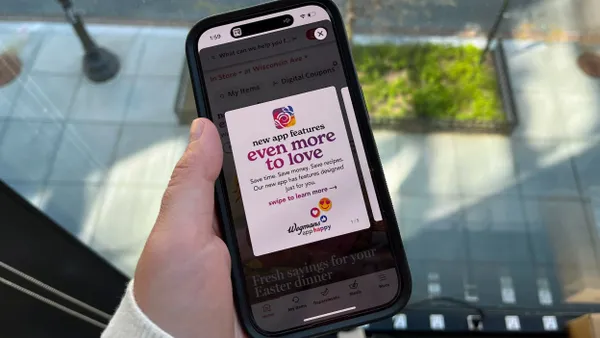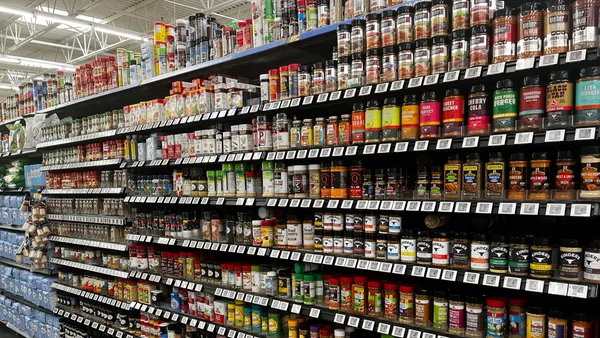Dive Brief:
- Jyve, a firm that connects manufacturers and retailers with workers willing to perform in-store tasks like running demos, has come out of stealth mode and announced $35 million in new funding. In addition to building on its core merchandising work, the company aims to increase its e-commerce fulfillment services for retailers, CEO Bradford Oberwager said in an interview with Grocery Dive.
- Jyve also announced the hiring of Anu Gupta, a veteran of Safeway and formerly Target's senior vice president of strategy execution and operational excellence, as its chief operating officer. Ralph Leung, formerly a senior investment banker with Morgan Stanley, comes on board as the company's chief financial officer.
- Jyve, which claims more than $400 million in bookings, partnered with last-mile company Deliv in October to offer an end-to-end e-commerce service for retailers. Oberwager, who formerly served as chairman and CEO of Bare Snacks, which sold last year to PepsiCo, says Jyve has partnerships in place with other "leading" delivery and software companies. The company currently has more than 6,000 workers across 31 states working in 4,000 stores.
Dive Insight:
Jyve initially offered in-store merchandising services to brands when it launched three years ago, but gradually moved into picking and packing grocery e-commerce orders after retailers began requesting the service. Now, the company is all in on online grocery.
In an interview with Grocery Dive, Oberwager said most of the major retailers he has spoken with have concerns about their relationship with Instacart, the leading e-commerce service that partners with more than 300 grocers nationwide. These concerns center on customer data, the loss of advertising dollars and control of the customer experience, he said.
"Eighteen of the top 20 retailers want off Instacart. I know because I'm talking to them," he said.
Oberwager's comments about Instacart amount to a bit of gamesmanship between competitors in a high-stakes and fast-growing online grocery business. But others have noted Instacart's control over customer data and the shopping experience should be concerning to retailers. In a recent column, "Supermarket Guru" Phil Lempert raised the possibility of more grocers handling their own e-commerce fulfillment rather than relying on third-party companies like Instacart.
Whole Foods, an early investor and one of Instacart's first customers, ended its relationship with the company last month as new owner Amazon continues expanding its own Prime delivery service from stores.
Grocery Dive reached out to Instacart for comment, but a spokesperson declined.
After Amazon acquired Whole Foods in 2017, Instacart offered itself up to competing retailers as a fully capable, end-to-end e-commerce solution developed by a former Amazon engineer. Instacart's rise was meteoric, with each week following the acquisition seeming to bring a new deal with a major retailer.
In addition to potential friction with retailers, Instacart has had a rocky relationship with its workers. The company has settled a lawsuit over its handling of wages and tips and faced criticism over what some workers claim are inconsistency and a lack of transparency in payments. Instacart updated its payment process in October to address these concerns, but thousands of workers have said they're still not happy.
Instacart knows it has to work to stay relevant with the retailers it serves. In an interview with Grocery Dive last year, the company's chief business officer, Nilam Ganenthiran, said it was busy developing new tools and services that would prove valuable to grocers. Since then, Instacart has added nationwide pickup service, acquired a leading digital services provider, expanded to additional retailers like Aldi and Sam's Club, and slashed its membership and delivery fees.
"We take the privilege of being their e-commerce strategy extremely seriously," Ganenthiran told Grocery Dive at the time. "This is a core part of their business."
As e-commerce demand grows, grocers are taking a hard look at how to handle fulfillment going forward. Building out their own online picking and delivery capabilities is very expensive, but offers full control over the process and could become increasingly attractive to large grocers. Hy-Vee runs its own e-commerce service, Aisles Online, as does Albertsons. Both companies also contract with Instacart.
Retailers may look to hybrid offerings that combine vendor capabilities as well as their own, as Walmart is doing. The retailer uses its own store employees to pick and pack products, and to cart orders out to customers' cars, giving it quality control. Walmart then uses last-mile companies like Deliv, Doordash and Postmates to handle delivery, the most expensive part of fulfillment. Last week, Walmart announced it's partnering with four additional delivery partners, including Point Pickup, Skipcart, AxleHire and Roadie.
For its part, Jyve handles the in-store piece of the puzzle. Oberwager says this is a natural step for the company, since Jyvers, as it refers to workers, are already in stores. Jyve's partnership with specialists like Deliv is a model other online service providers — like Mercatus and DoorDash — have followed.
With demand for online grocery accelerating and sales expected to hit as much as $100 billion in the next few years, grocers will encounter more and more vendors clamoring to handle their e-commerce fulfillment. Instacart, meanwhile, will have its hands full. After nearly two years of rapidly partnering with retailers, the company now has to fight to defend its top position.



